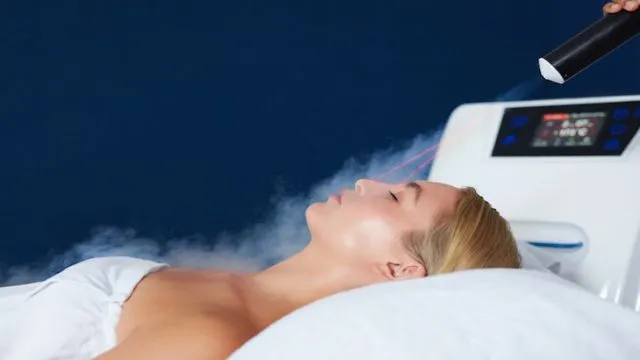
- Share on Facebook85
- Share on Pinterest
- Share on Twitter
The latest rage among celebrities seeking the fountain of youth involves freezing. Cryotherapy began with the use of low temperatures in medicine to eradicate diseased or unwanted tissue, such as moles or skin tags. That’s not what the stars are seeking. Instead, they flock to cryotherapy treatment for its purported ability to burn calories, increase fitness and stop aging. While common in Europe, the practice is relatively new to North America.
Advocates claim cryotherapy can aid anxiety, insomnia, aches and pains, and depression, along with stimulating the immune system and boosting energy. While generally safe, it’s crucial to have adequate supervision during treatment sessions. A lack of supervision cost the life of a young woman last year.
Cryotherapy
At specialized cryotherapy centers, users can choose between whole body and partial body treatments. Whole body cryotherapy treatment consists of spending up to three minutes in a cryotherapy chamber, where the temperature is 228 degrees or more below zero thanks to the infusion of liquid nitrogen. Clients remove all clothes except underwear, but wear socks, mittens and earmuffs to prevent frostbite. You’d be warmer visiting the coldest regions of Antarctica. Partial body therapy is similar, except that the head remains outside the chamber and isn’t subjected to the intense cold. In either case, you’ll burn about 800 calories per session.
Major athletic teams have mobile cryotherapy units accompanying them on the road.
How it works
During those few minutes in the chamber, the individual’s skin signals the brain, stimulating a reaction and triggering the release of endorphins, with their natural healing properties. After exiting the chamber, the body reheats rapidly.
Many top athletes use cryotherapy to stay in shape. One New York City cryotherapy center owner refers to the practice as “legal doping.” Cryotherapy allows patients to fall into a good, deep sleep that night, helping insomniacs and athletes needing a refreshing sleep for their bodies.
Anti-aging properties
Extreme cold treatments to halt signs of aging have been used for generations in Scandinavia, and it’s the major reason celebrities are turning to it. Such treatments don’t require immersion in a chamber. Instead a laser-like beam of liquid nitrogen accomplishes the task by freezing the skin. Known as cryoneuromodulation, it reputedly rejuvenates skin by tightening, reducing wrinkles and helping cells repair. It’s not a one-step process — to get the best results, indulge in three or four sessions over a month.
Pain management
While cryotherapy temporarily relieves pain, it is best used in conjunction with other treatments. This includes physical therapy initiated directly after the session, so the patient can engage in motions not possible during the pain state. Your physical therapist will custom design a therapy regimen for your post-cryotherapy treatment, with the purpose of offering long-term relief.
Other uses
Cryotherapy may help those suffering from other physical or emotional ailments. These include the following:
- chronic inflammation
- recuperation after surgery
- injury recovery
- stress
Death in Vegas
In October 2015, a young woman died in a Las Vegas cryotherapy tank. The 24-year-old was an employee of the cryotherapy center, and apparently decided to give herself a session after hours. When she was found, her body was “rock-hard solid,” according to a relative. After the employee’s death, Nevada created cryotherapy guidelines, which prohibit those under age 18 or under five feet tall from using the chambers, along with a list of contraindications for cryotherapy.
Contraindications
Pregnant women and those with a history of several medical conditions should not use cryotherapy. These conditions include the following:
- high blood pressure
- asthma
- seizures
- poor circulation
- stroke
- blood clots
Anyone currently suffering from an infection should not use the chamber, nor should anyone using a pacemaker.
If you would like to know whether cryotherapy treatment is appropriate for your particular needs, consult your doctor before undergoing a session.
Right now, cryotherapy centers are located primarily in major US cities, but that’s sure to change as the practice becomes better known. If you’re just going in for a quick pick-me-up without physical therapy afterward, schedule a session on your lunch hour or immediately before or after work. There’s certainly few therapies that can turn back the clock, lift your mood, relieve your pain and help you lose weight in just three minutes.
—Jane Meggitt
- Share on Facebook85
- Share on Pinterest
- Share on Twitter

